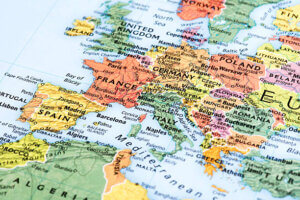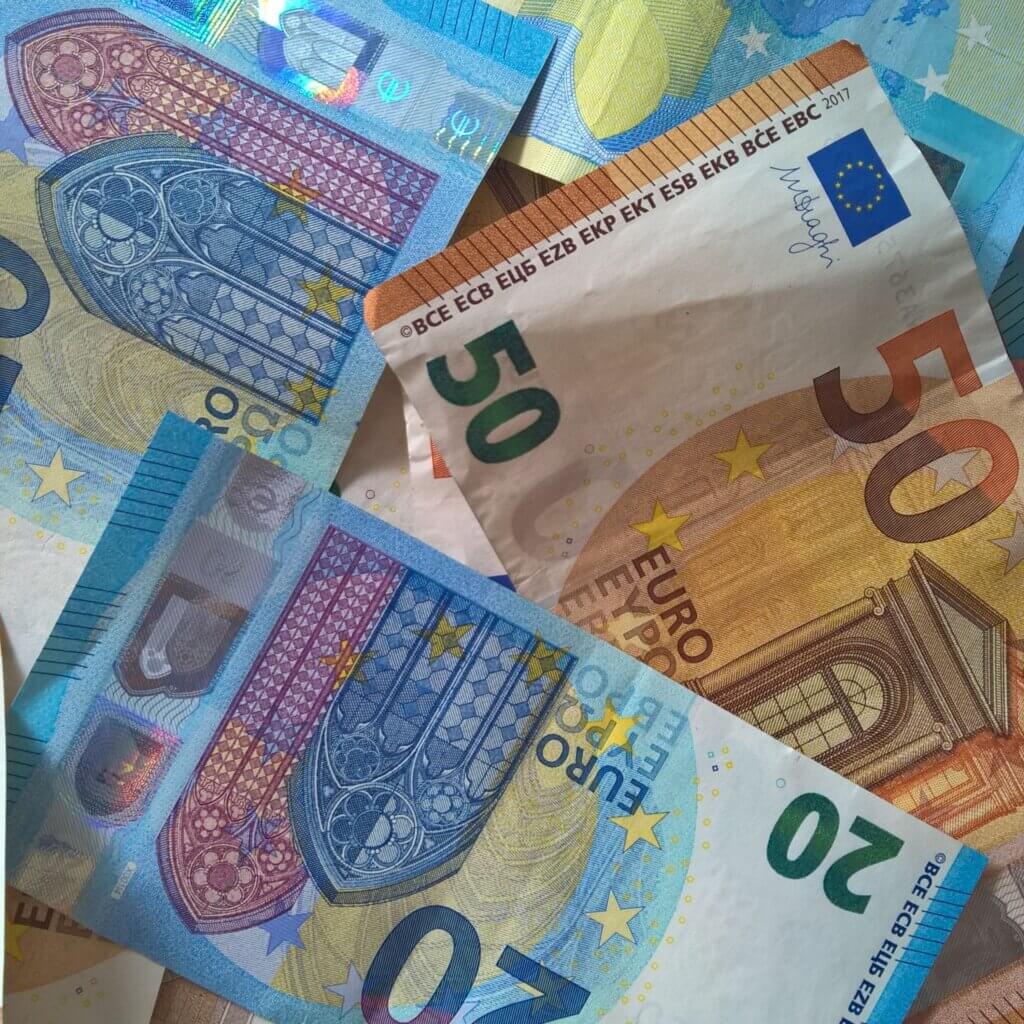Lately I’ve been tracking some online conversations (debates) about whether or not pilgrims must be able to provide proof of financial means upon entering Europe.
Much of the discussion has centered around ideas like “I’ve never heard of this, and I have never had to provide proof, so this can’t be real.”
Well, technically it is real, so let’s sort out some facts. We will start with the “letter of the law” – what the authorities are entitled to ask for – and then we will circle back to the “spirit of the law” – what they actually ask for in most cases. (Stick with me to the end of this email before you start to panic!)
First, let’s get some high level perspective on the most traveled Camino countries.
The Schengen Area
France, Spain, and Portugal are all part of what is called the “Schengen area“, a collection of 27 European countries that have agreed to drop their border controls and allow for easier and freer movement between countries.
In practice, that means you can arrive into one Schengen country and not have to show your passport or visa again when you enter another Schengen country (for example, when going from Portugal to Spain). And on a standard tourist visa, you can stay in any combination of Schengen countries for up to 90 days in any 180 day period. (That will give you plenty of time to walk the Camino!)
Visa requirements vary depending on your (or your passport’s) country of origin and what type of visa you are applying for. For example, US passport holders do not need a visa to enter and visit the Schengen countries, but others do. Do you need a visa? A simple internet search will yield the answer to that question.
*This website is not an official website of a ruling government entity of the Schengen area. Rather, it is a well-curated source of information and is provided as a starting point to determine if you need to apply in advance for a visa.
Once you know if you need to apply for a visa, your next step would be to visit the official website of the embassy or consulate near you for your European arrival country. If you will fly into Spain, you can find a list of embassies and consulates here . This website will tell you everything you need to know about visa and entry requirements for Spain.

Speaking of Entry Requirements
Let me now get back to where I was originally headed in this email: providing proof of financial means – the letter of the law.
If you are required to apply in advance for a visa to enter the Schengen area, you will be required to show proof of financial resources when you apply. But what about the rest of us?
I am going to quote the website mentioned above (the one that’s not official, but I did cross-check this information to a couple of embassy websites).
If you are entering Europe through an airport or port in Spain:
If you are entering Europe through an airport or port in France:
If you are entering Europe through an airport or port in Portugal:
Say what?!?!?!
Note that if you have to apply in advance for a visa, you will have already provided proof of financial means. If you do not have to apply for a visa in advance, you can be asked for that documentation when you arrive in France, Spain, or Portugal.
That is the letter of the law, and immigration officials have every right to demand travelers provide documentation to prove their financial viability.
But the “spirit of the law” is much different, at least in my experience, and that of many of the pilgrim stories I have been reading. In other words, there is a pretty good chance you won’t be asked to provide any proof of financial worthiness at all.
Still, I like to be prepared
Nothing would wreck my Camino experience faster than being sent home before even leaving my arrival airport. So I have a new plan.
I have never done this before, but for my next trip to Europe I am going to print up the page of my credit card statement that shows my credit limit. And I am also going to print up something showing my current bank account balance.
I’m going to do those two things because I read this on Spain’s official website :
(I don’t like to carry a lot of cash, and I haven’t seen a traveller’s cheque since the early 90’s.)
What about the poor, lowly pilgrim?
What if you are headed to the Camino as a humble pilgrim, with the intent of staying in albergues, or pilgrim hostels, and surviving on simple meals made in the albergue kitchens, with a budget of 30 to 40 euros a day?
Again, the chances of being pulled out of the immigration and passport control queue and made to prove your financial worth are, I think, slim. But you never know.
I can’t promise this will happen, but it’s also possible that if you told a Spanish immigration officer that you are a pilgrim on the road to Santiago de Compostela, you may be waved through, receiving your first dose of “the Camino provides.”
And may it continue to do so . . .
P.S. If you have more questions on this topic, I recommend following the links throughout this post to find information specific to your country and circumstances.

